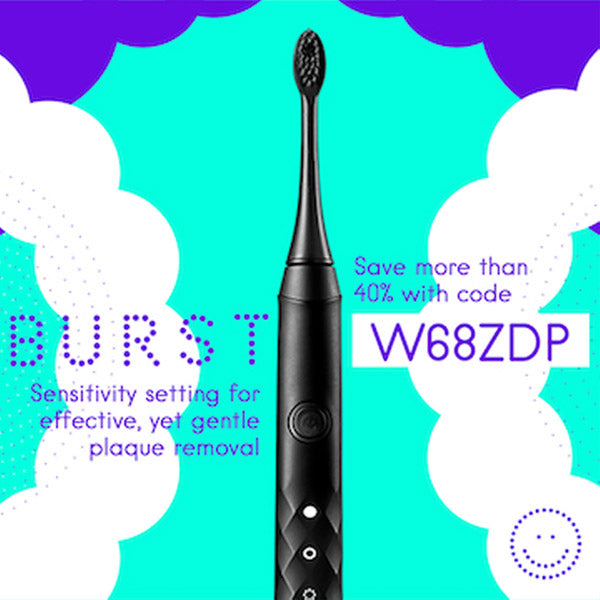Malpractice Issues with Head and Neck Cancers

A sincere THANK YOU to Eva Grayzel and www.sixstepscreening.org for sharing this important information regarding malpractice issues related to the diagnosis of Head and Neck Cancers.
Avoid Being Sued for Dental Malpractice for Oral/Oropharyngeal Cancer And Increase Your Chances of a Successful Defense Against a Claim
Harry A. Dorian, Jr., Esquire
Harry Dorian is the managing partner of the Bensalem, PA law firm of Dorian, Goldstein, Wisniewski & Orchinik, P.C. For more than 30 years, he has focused his practice on negligence cases involving serious injuries or death, including medical and dental malpractice. He has represented both defendants and plaintiffs. Harry is continually named a "Pennsylvania Super Lawyer" by Philadelphia Magazine. For more than 15 consecutive years, he received the highest possible ratings for legal ability and ethical standards. www.doriangoldstein.com
This information was presented at the University of Michigan School of Dentistry Continuing Education program event entitled, "Serve Your Patients Right and Avoid Being Served: Perspectives from the Doctor, Lawyer, and Patient." If you are interested in bringing this course to your dental community, contact eva@evagrayzel.com.
The Basics
• Oral Cancer is likely the most significant condition a dental care provider may ever see.
• Dental professionals need to obtain comprehensive histories and perform thorough head, neck and oral examinations.
• Oral cancer screening exams can detect cancer at an early stage, when treatment is most effective. Early treatment saves lives.
• Malpractice suits are stressful, disruptive, costly, and emotionally draining.
Note: Malpractice laws vary from state to state. Speak to an attorney in your jurisdiction about your particular situation.
What Is Malpractice?
Three basic elements:
• Negligence: Breach of duty – violation of the 'Standards of Care'
• Damages / Injuries
• Causation: Link between negligence and damages
If any are missing – a plaintiff will likely NOT succeed
Dental malpractice cases for failure to diagnose oral cancer can result in very large verdicts because victims often require extensive surgery and treatment and cannot return to work due to facial disfigurement and an inability to articulate. The largest oral cancer case to date resulted in a $15 million recovery.
Top reasons patients pursues a lawsuit:
• Failure to diagnose cancer in it's early stages
• Failure to refer to specialist
• Permanent damage: loss of teeth, nerve impairment, severe infection, extensive corrective dental work to eat normally and look acceptable in public
• Abandonment of patient
What Are The 'Standards of Care'?
Legal definition (generally): "The degree of care that a reasonably prudent healthcare professional should exercise". In other words, "Rules" that must be followed for the health and safety of the patient.
The standards of care are based on many things, including research studies and surveys, training, common practices, and testimony from an expert in the field.
The standards of care for early detection of oral cancer require routine oral cancer screenings for all patients.
Surveys:
• 2006: 54% of general dentists do an Oral Cancer Screening.
• 2009: 90% of general dentists do an Oral Cancer Screening on new patients.
• Literature and studies support the routine performance of oral cancer screenings.
An expert will probably testify that the majority of general dentists perform oral cancer screening on their patients, and that the studies and literature require that practice, so it is the standard of care for dentist. Ultimately, a jury must decide if the standard was violated.
A jury will be swayed by the low cost of a screening, the minimal time it takes, and the risk to the patient if oral cancer is not diagnosed early.
Complying with the 'standards of care' means providing the best care possible for your patients, and possibly saving a patient's life.
What Attorneys Look For
• Large potential damages: permanent injuries (e.g. disfigurement, inability to eat or speak normally, decreased prognosis).
• Significant delay in diagnosis: reduces the chances of survival or cure and affects the severity of surgery and treatment.
In cases where delay was > 3 months, the patient won 60% of the time.
In cases where delay was < 3 months, the patient won 14% of the time.
• Compliance: a 'blameless client' who maintains good dental hygiene, visits a dental practice regularly, follows instructions and recommendations, and promptly seeks treatment.
• Criticism: the patient's (or a subsequent dentist's) statements about what was done negligently.
• Breach of Duty: according to current practices, research, literature.
• Poor Record-Keeping: inadequate charting and documentation, failure to follow-up, alterations to records, difficulty obtaining records from provider. RED FLAG - no documentation of an Oral Cancer Screening
• Failure to Refer to a specialist
• Failure to Follow-Up
How to Decrease the Chances of Being Sued:
• Maintain good communication with patients:
Studies show that a good dr/pt relationship reduces the risk of being sued.
• Stay current with research and studies: The standards of care are 'fluid'; they keep changing..
• "If in doubt, refer the patient out." Stay within your comfort, training and skill level.
• Follow-up on recommendations and referrals with a phone call or send a correspondence and document it. Don't assume a negative biopsy is 100% accurate.
• Train your staff on office procedures for Oral Cancer screenings
• Document, document, document: Chart all findings on examination (location, size, color, history), recommendation to patient, non-compliance by patient, broken appointments, lack of follow-up, referral names/dates, patient education.
• Include a perioprobe in the photograph of a suspicious lesion to document it's exact size.
Good Charting
Use ink, chart promptly, initial, use consistent and standard abbreviations, write legible entries. Document all intra-oral and extra-oral cancer screening
exams.
Alteration of Records can turn a "so-so case" into a good one and increases its value. Lawyers sometimes hire document experts who provide ink-dating along with a microscopic and chemical analysis. If a jury believes you re-wrote or changed records, they will believe you were covering up negligence.
Mistake in chart: put a single line through the error, initial and date it.
Addition to chart: properly date and time the additional information.
Electronic Records have an "audit trail" and contain metadata showing dates of entries and changes. A computer forensic expert can uncover improper or altered entries.
If you can save just ONE life in your entire career in dentistry, isn't it worth it to do an oral cancer screening exam on all your patients?




